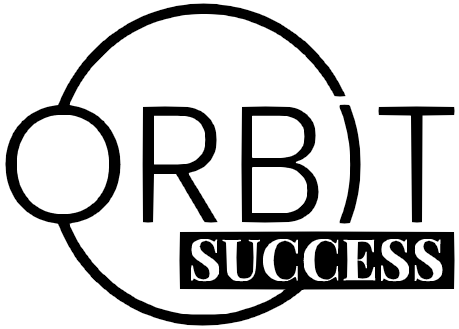All three scenarios share one thing in common. What is it?
Your mom called you after you have finished working out and said, “Hi honey. Your mom left you a voicemail: “Hi honey, can you take me tomorrow morning to the doctor?” She has an important call and you know that she will be upset if it isn’t possible.
Your phone rings at 10 p.m. It’s an email sent by a new client. It’s already midnight and you are about to go to bed. But, you know that they will reply before the morning.
The texts start to come in rapid-fire. You see your friend, venting about their split for the third consecutive day. You want to support them, but it’s too overwhelming with work to respond.
The unifying thread: You feel as though your boundaries are being pushed aside.
Some people are naturally good at setting healthy boundaries It can be difficult for others. It doesn’t matter how proficient you are at it. However, there is one truth: Whether your self-employed or have a side-business , setting boundaries isn’t just important, but essential. People assume that you are more flexible and free than you actually are when you don’t work in an office setting or work for yourself.
Ramani Durvasula Ph.D. is a psychologist and professor emerita at California State University Los Angeles. You are the one who is most likely to be hurt by this. To be able set healthy boundaries, it’s an important part of self-preservation and self-respect.
For a step-by guide on how to establish boundaries professionally and personally, read on.
Step 1: Determine if your boundaries have been crossed.
Sometimes it can be hard to tell when a boundary is crossed.
Durvasula states that a person’s ability notice boundary violations can often be traced back at their upbringing. For example, if your family has poor boundaries, it might be difficult for you to recognize when your boundaries have been crossed as an adult.
There are several ways you can tell when you are being pushed beyond your limits.
1. You feel it.
Durvasula states that “we often feel boundary violations physiologically.” They make us feel uncomfortable. It’s almost like our gut is speaking to us.”
She says that many of us will attempt to get out of uncomfortable feelings. You’re being silly, you think. We rationalize that if I say no, it will be so mean. If our intuition tells us that a boundary has been crossed, it is most likely.
2. You notice uncomfortable emotions popping up.
Shannon Curry, a licensed clinical psychologist and forensic psychologist, is based in Newport Beach. She says that there are a few signs that you might be losing your boundaries. You might:
- Resentful towards the other person
- If you refuse to comply with a request, you should feel guilty.
- You feel like you are being forced upon.
- Feel taken advantage of.
- Feel irritated or violated.
Curry states, “It might even be difficult to express what the emotion is.” Curry says that this could indicate that a personal boundary is being crossed.
3. It feels like the relationship is not balanced.
You may be experiencing inappropriate boundaries if you feel you are giving too much of your time to others.
Durvasula states that if boundaries are broken, the relationship can feel unbalanced. It will feel very unbalanced.
Step 2: Learn the benefits of setting boundaries that are more restrictive.
It is not easy to establish boundaries. It is a complex and nuanced process that takes practice and mental fortitude. People often find it difficult to act even when they feel anger, resentment, or guilt.
Durvasula states that there is a time in the beginning when setting boundaries can be so difficult for people. “They’re like to hell, I’d rather do it all myself than feel this uncomfortable, .” Durvasula adds. They can respectfully disagree with the boundaries if they are able to endure the discomfort.
To get past the initial discomfort, imagine the many benefits of protecting and conserving your time.
Grow your business if you are self-employed, or have a side gig. You can also set clear boundaries with clients to preserve your time. This will allow you to conserve emotional energy and provide many other benefits.
Curry states, “What you can expect is a life built on values.” You’ll have more of the things you love. You will feel more dignity and self-respect. You will be treated with respect and love. You’ll choose to do the things that you want, not what was forced upon you.
Step 3: Begin setting boundaries.
This six-step plan can help you establish boundaries professionally and personally.
1. Take a look inward.
Durvasula states that the most important step in any process is to reflect on your past. How were your boundaries as a child? What lessons did your parents give you about boundaries? She continues, “People who were raised in families with weak or enmeshed boundaries may have difficulty setting them as adults.”
Durvasula states, “If you don’t take the time to understand what you were taught about boundaries setting, it can be confusing.” “Once you begin saying Ah!, I have trouble saying yes because I worry that if I say no, no one is going to love. That’s an important piece of information.”
A therapist can help those who have difficulty setting boundaries.
2: Be sure to set a boundary that is worth it.
Curry suggests that you think about the situation and ask three questions.
- What outcome do I want?
- Do I have self-respect?
- This relationship is so important!
These questions will help you decide if this is the boundary you want.
3. Keep your speech as clear as possible
Clarity is the key. Clarity is key. Instead of saying “I’m so overwhelmed with work, I will get back to you shortly,” you might say “I’d like to chat, but I’m too busy today.” Once I get caught up with work, I will call you tomorrow afternoon.”
4. Frame the conversation positively
Durvasula states that it is important to let your friend, family member, or client know you are establishing this boundary. This will help to build a stronger relationship.
Consider this: Your sister texts and calls you several times per day to inform you about her baby. This interrupts your work flow. Your sister is your best friend, but you are growing resentful.
You don’t have to say, “Please stop calling” because I’m too busy. You might try something like “I know that you are going through a special moment right now, and I would love to be involved but maybe we could touch base at the X time after I’m done with work for the day.”
5: Be aware of your attitude
Curry states that many of us struggle to assert boundaries due to our emotions.
Curry states that ruminating is a way to get rid of negative emotions and make people feel uncomfortable. “And those negative emotions become strong that we tend to communicate poorly .
Unintentionally, this could lead to things such as avoiding eye contact or appearing cautious.
Preparing your body language and tone is just as important than preparing your words. Your voice should be free from anger, resentment, or hostility. Try to be calm and confident.
Curry states that people are more likely than others to accept our requests or decline them. This is because they feel calm, they can express their needs in a fair and reasonable way, and they respect the other person.
6: Keep in touch with yourself frequently
Boundary setting does not mean that we have to say no to everything we don’t want. Durvasula explains that sometimes we have to say yes, even though we don’t want to. Close relationships are built on reciprocity.
It’s important to take the time to reflect on your boundaries and not go overboard in setting them. Is your relationship healthy? Are you able to do things you don’t like?
Durvasula states that “[Boundaries] don’t just mean saying no.” It’s all about context in a healthy relationship.
* * *
You don’t want to be discouraged if you have trouble getting started.
Durvasula states, “If someone is willing reject you on account of you setting boundaries, it’s important to get that information early.” “You have just dodged a bullet.”

